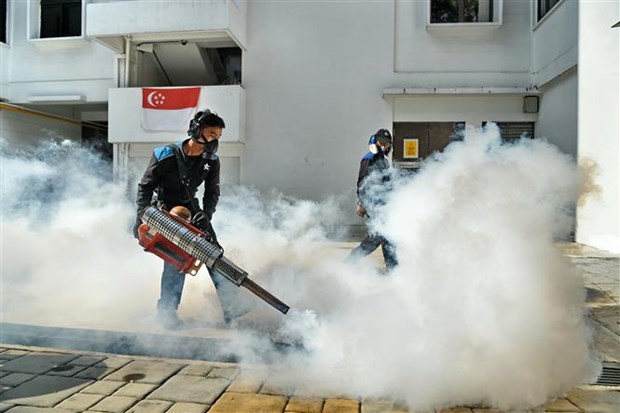Singapore confirms two more Zika cases
 Chemical spraying to stop the spread of Zika in Singapore (Photo: AFP/VNA)
Chemical spraying to stop the spread of Zika in Singapore (Photo: AFP/VNA)Singapore (VNA) – Singapore’s National
Environment Agency (NEA) on June 9 announced that two Zika
transmitted cases have been confirmed in Parry Avenue area, bringing the total number
of reported cases in the country to eight this year.
Local authorities are taking measure to kill
mosquito in the area to stop the spread of Zika virus, said NEA.
The agency also urged residents to maintain
vigilance and continue to eliminate mosquito breeding habitats in summer, which
is the season for mosquito-transmitted diseases.
In 2016, Singapore recorded over 400
Zika-infected cases since the first case was reported in last August.
First found in Africa, Zika virus has spread to
Asia and Latin America, triggering the largest outbreak so far. As many as 73
countries and territories across the world reported people with the disease,
with Latin America being the most affected area, according to the World Health
Organisation (WHO).
Zika virus is mainly transmitted through the
Aedes Aegypti mosquito, blood transmission and sexual intercourse, causing
fever, sore eyes and a rash. Pregnant women infected with the virus might give
birth to babies with microcephaly - a deformation that leads to abnormally small
brains and heads.
Currently, there is no vaccine or specific
medication for the virus.-VNA











